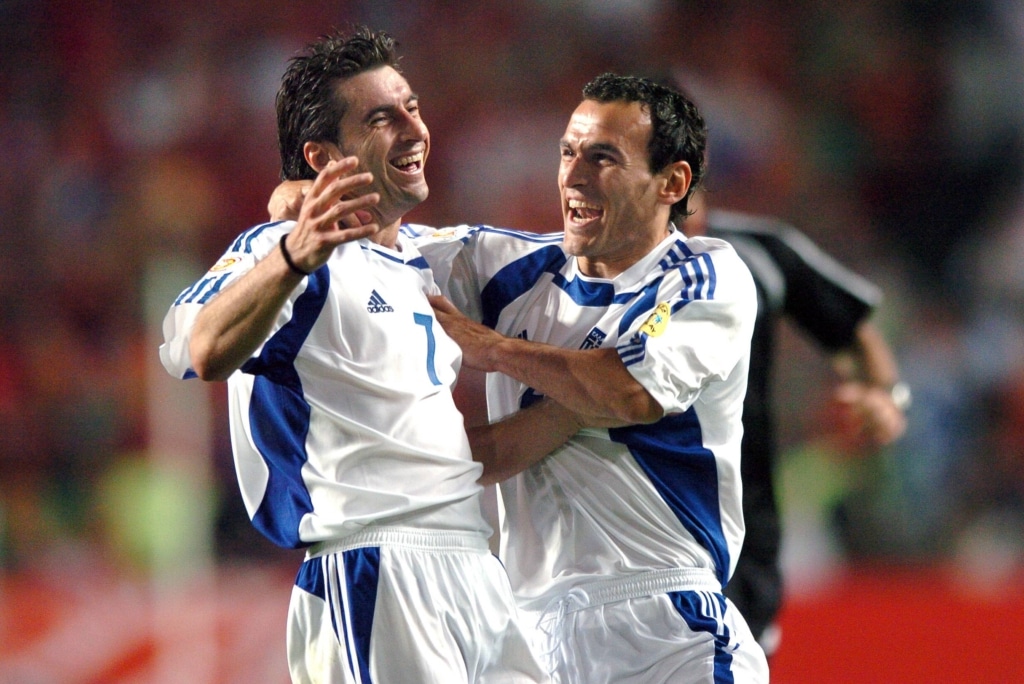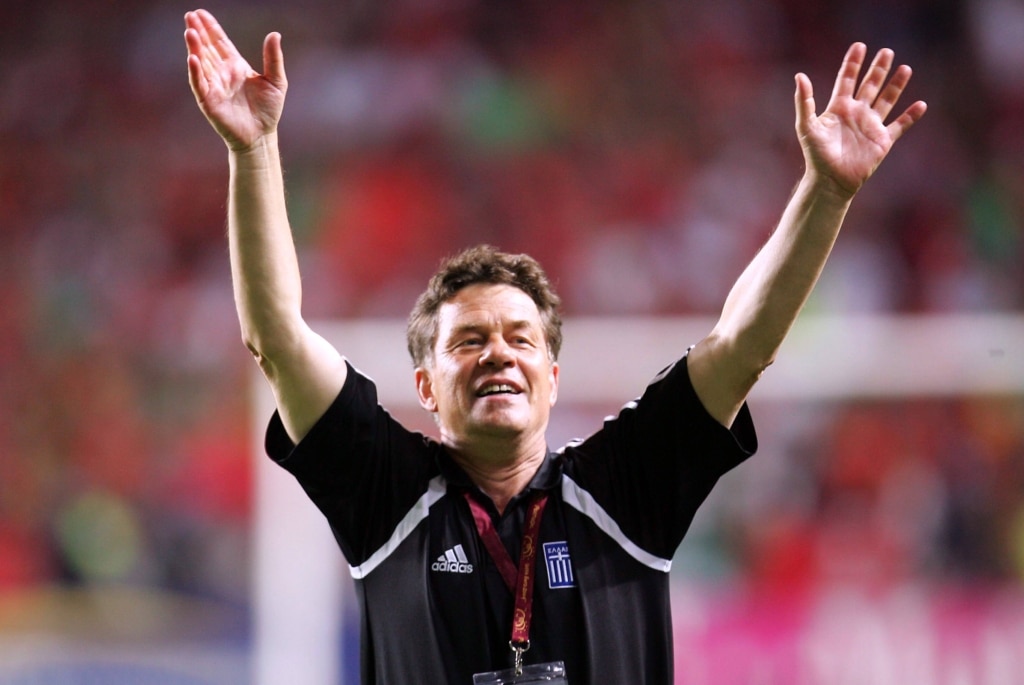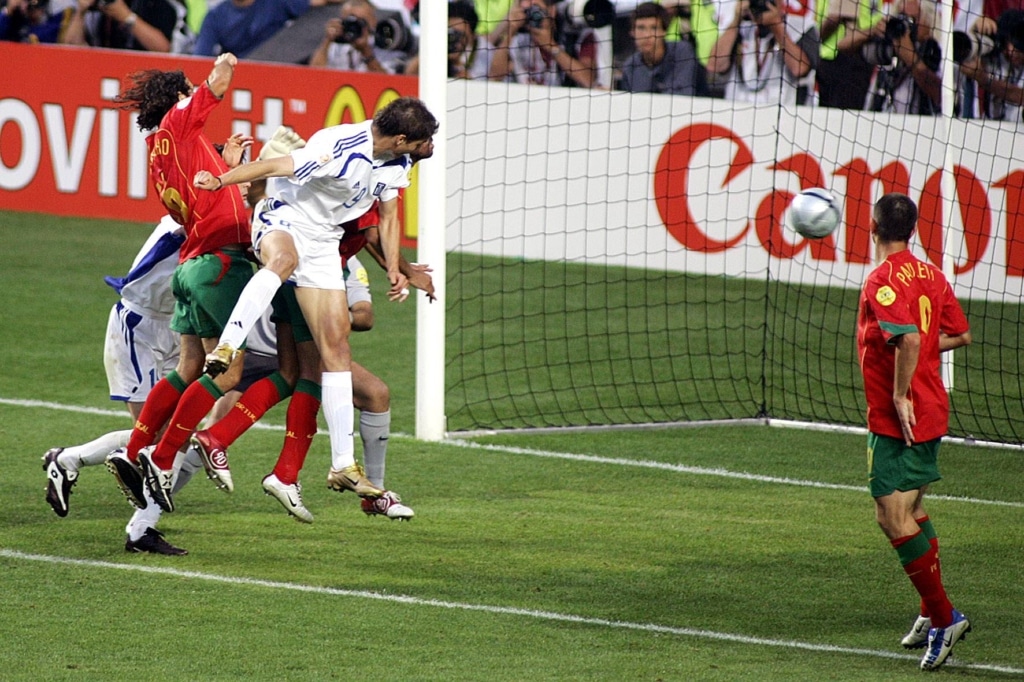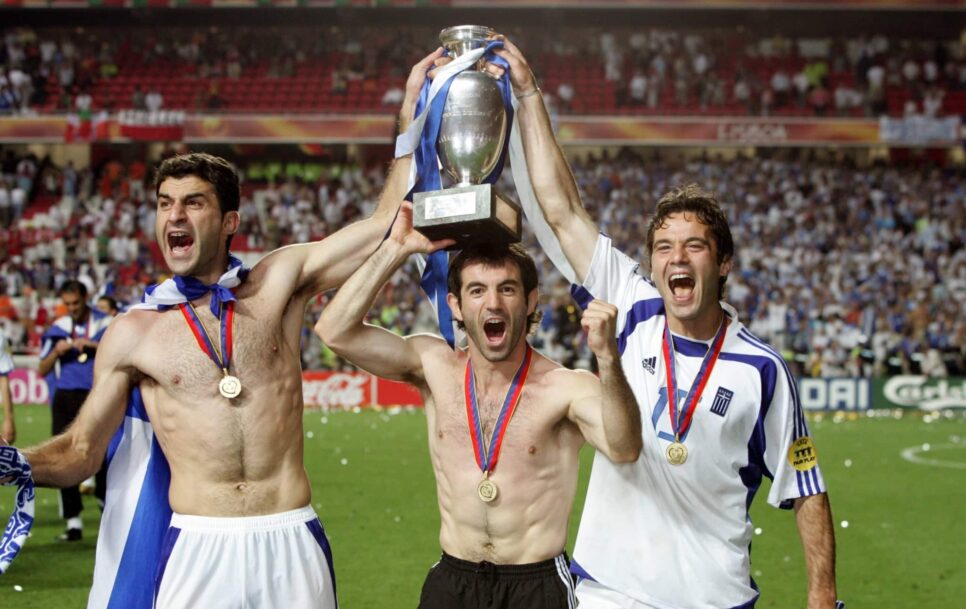Iconic EURO moment: Greece’s cinderella story in 2004
Before 2004, Greece’s national football team had made it to major tournaments only twice, earning just one point in the 1980 European Championship and losing all three games in the 1994 World Cup. Yet, 20 years ago, they orchestrated one of the greatest shocks in Euros history.
Greece’s victory has often been compared to Denmark’s 1992 triumph. Both were remarkable surprises, but the Scandinavian team boasted stars like Peter Schmeichel and Brian Laudrup. While a few Greeks played in top leagues in Italy and Germany, players like Angelos Charisteas and Giorgos Karagounis were far from household names. Moreover, 15 out of Otto Rehhagel’s 23-man squad played in Greece’s domestic league.
Expectations were low before the tournament. “The only target we had at Euro 2004 was to be competitive, represent the country with pride, and improve on that dreadful record in the World Cup,” recalled central defender Nikos Dabizas, a member of the victorious team, in an interview with The Guardian.

The pragmatic Rehhagel
The foundation for success was laid in August 2001 when Otto Rehhagel was appointed manager. His first official match ended in a 1-5 defeat to Finland, prompting significant changes. These changes paid off as Greece outperformed Spain and Ukraine in the qualifiers, earning a direct spot into Euro 2004.
Rehhagel, who had enjoyed a long and successful coaching career in Germany, was a pragmatist. “No one should forget that a coach adapts the tactics to the characteristics of the available players,” he once said. Greece didn’t try to play outside their capabilities but instead focused on their strengths.

From the opening match, Greece showed they could be dangerous. They defeated hosts Portugal 2-1, a team featuring a young Cristiano Ronaldo, the legendary Luis Figo, and several players fresh off a Champions League victory with Porto. A subsequent draw with Spain made advancement from the group stage likely, and despite a 2-1 loss to Russia, Portugal’s 1-0 win over Spain ensured Greece’s progression.
In the knockout stage, Greece secured three consecutive 1-0 victories over France, Czechia, and Portugal again in the final. Notably, this was the first time in a major tournament that the teams in the opening match also faced off in the final.
Assistant coach Ioannis Topalidis noted that defeating the star-studded French team gave Greece the belief they could win the entire tournament. “Once we reached the final we wanted to finish the miracle. It wasn’t just about participating by that point. In the end we beat them twice and it was a clear indication we were a better team: not the most talented team, but the most effective team,” he said. “We had to be realistic, relying on defence, taking advantage of set pieces and being very effective on the counter. We had to be realistic, relying on defence, taking advantage of set pieces and being very effective on the counter.”
Although Greece shocked the football world, they faced much criticism. Many disliked Rehhagel’s defensive tactics, labeling it anti-football. Some even called Greece the only underdogs in history everyone wanted to see defeated.
However, experts later pointed out that while Greece’s football was neither fluid nor spectacular, it was tactically near-perfect. They nullified opponents’ attacks and, despite scoring few goals, executed an effective offensive strategy. The best example was the final against Portugal, where Greece scored with their only on-target attempt, a header by Charisteas.

By the way, Rehhagel was no stranger to upsets. In the 1997-98 season, he led newly promoted Kaiserslautern to the Bundesliga title, an achievement unmatched in German football history.
Greece was like a family
A key to Greece’s success was their dominance in aerial battles. Rehhagel ensured his team had at least three strong aerial players—two in defense, one in attack. Charisteas excelled as a central striker, being not only tall but also physically strong, thriving in duels with defenders.
Michael Cox, a journalist renowned for explaining the tactical intricacies of football, hailed Greece’s win as the tactical achievement of the decade. “To beat the holders (France), the best team (Czechia) and the hosts (Portugal) in successive rounds – by the same scoreline, by scoring the same way – doesn’t happen by accident. It happens through immense tactical wisdom and careful deployment of tactics to suit each game,” he wrote.
Beyond Rehhagel’s excellent tactics, team spirit propelled Greece. “We were a family, a team,” Charisteas explained. “We put the collective above the individual; everyone played for the country, for the team, not for himself. We all respected each other and had so much love for what we did. We had a coach that brought in a very good philosophy and organised the team very well. If you put all those pieces together, it’s a recipe for champions.”
Charisteas added that Greece’s triumph remains unforgettable. “I’ll sit down for a coffee somewhere and there’ll be someone next to me who says: ‘Angelos, I remember that 4 July …’”
Indeed, how could anyone forget the 2004 Euros, whether they are a football fan from Greece or elsewhere?






